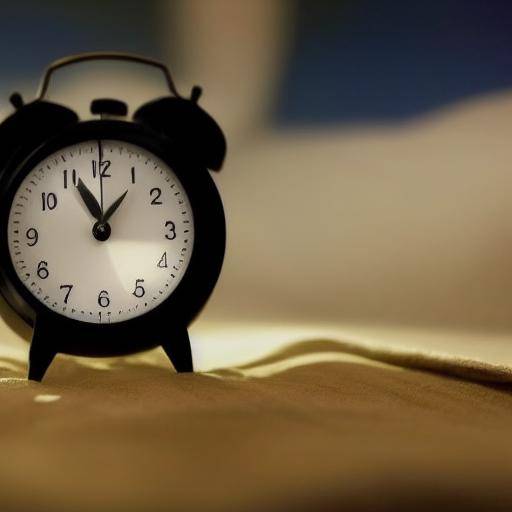
Welcome! If you are looking for ways to manage insomnia to improve your performance, you have reached the right place. In this article we will thoroughly explore this common challenge, providing useful information, practical advice and effective strategies to address insomnia. You will discover how to improve the quality of your dream and consequently improve your mental performance in all areas of your life. Keep reading for a valuable knowledge that will change your perspective on sleep and productivity.
Introduction
Insomnia is a widespread problem that affects many people today. Inability to reconcile sleep or maintain it properly can have a significant impact on daily performance, both at work and in personal life. The good news is that, with appropriate strategies, insomnia can be managed effectively, leading to a repairing dream and finally improving performance. In this article, we will address this crucial issue and provide valuable information backed by science and experience.
History and background
Insomnia has been the subject of interest throughout history, with records that reveal different approaches to addressing this sleep disorder. From ancient relaxation practices to modern scientific advances, the management of insomnia has made great strides. We will explore the evolution of strategies to improve sleep, from traditional approaches to contemporary innovations.
Traditional approaches
In ancient times, people used various techniques to induce sleep, such as herbal infusions, meditation rituals and massages. Cultures such as Egyptian, Greek and Chinese developed specific methods to deal with sleep problems. For example, Egyptians recommended hot baths and the use of aromatic oils, while Chinese medicine used acupuncture and phytotherapy techniques.
Modern scientific advances
With the advancement of science, our understanding of insomnia has improved considerably. Insomnia has been shown to be related to psychological, physiological and environmental factors. Modern research has led to the development of behavioral and pharmacological therapies that can help improve sleep quality. Cognitive-behavioral therapy for insomnia (CTC-I) is one of the most effective approaches and is supported by numerous research.
Causes of insomnia
Psychological factors
Stress, anxiety and depression are common causes of insomnia. Daily concerns can keep the mind active during the night, preventing sleep. Stress management and the practice of relaxation techniques can be very useful to improve sleep quality.
physiological factors
Health problems such as chronic pain, sleep apnea and neurological disorders can interfere with sleep. In addition, hormonal changes, such as those that occur during menopause, can also affect sleep.
Environmental factors
The sleeping environment plays a crucial role. A noisy environment, an uncomfortable bed or an inadequate temperature can make sleep difficult. It is important to create an enabling environment for sleep, including a dark, quiet and fresh room.
Strategies to improve sleep
Consistent sleep routine
Maintaining a regular sleep routine, lying down and rising at the same time every day, can help regulate the body's sleep-vigil cycle. Even on weekends, it is advisable to keep the same schedule.
Hygiene of sleep
Sleep hygiene involves practices and habits that facilitate good rest. This includes avoiding caffeine and heavy meals before bedtime, as well as limiting the use of electronic devices that emit blue light, which can interfere with the production of melatonin.
Relaxation techniques
Practicing relaxation techniques such as meditation, yoga or deep breathing before bedtime can help calm the mind and prepare the body for sleep.
Cognitive-ductual therapy for insomnia (CTC-I)
TCC-I is a form of therapy that focuses on changing thoughts and behaviors that perpetuate insomnia. It has been shown to be highly effective and can provide long-term relief without the side effects of medicines.
Medication
In some cases, it may be necessary to use medication to treat insomnia. However, these medicines should be prescribed by a health professional and should be used with caution due to possible side effects and risk of dependency.
Sleep impact on performance
Lack of sleep not only affects the mood, but also has a significant impact on cognitive and physical performance. Sleep deprivation can decrease concentration, reaction time and memory, negatively affecting productivity at work and in other areas of life.
Benefits of a Good Dream
A proper dream improves memory, creativity and decision-making capacity. In addition, the repairing sleep strengthens the immune system, improves mood and increases energy, resulting in better overall performance.
Conclusion
Manage insomnia is essential to improve performance and quality of life. Through a combination of traditional and modern techniques, it is possible to overcome insomnia and enjoy a restorative dream. Implementing healthy sleep habits, managing stress and, if necessary, seeking professional help are crucial steps to achieve proper rest and improve performance in all areas of life. Start taking steps today to improve your dream and performance!
